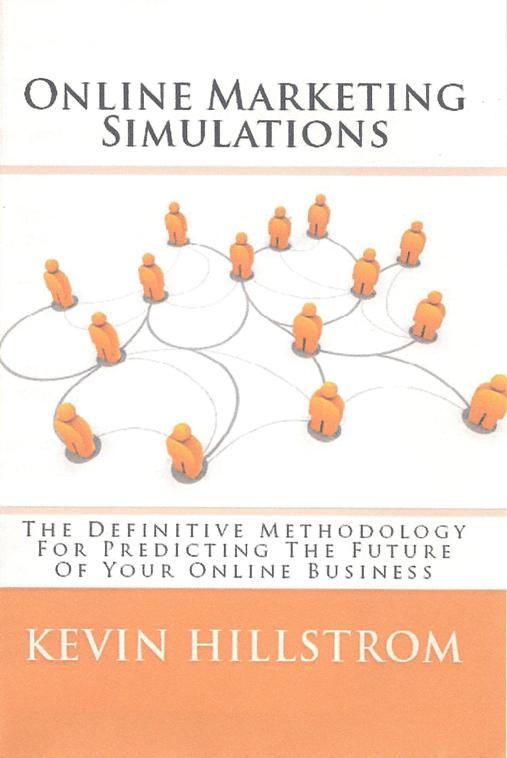Gliebers Dresses: An Exit
Welcome to the Gliebers Dresses Executive meeting. Fitz Gleason is in attendance.
Glenn Glieber (Owner): "And so I think Ellen makes for a really good judge on American Idol. She adds a sense of humanity that is sometimes missing. Now, how many of you watched 'Lost' last week? Why is John Locke wearing a black t-shirt in some scenes, and then is dead in other scenes?"
Fitz Gleason (Private Equity Mogul): "Can we get down to business, Mr. Glieber?"
Glenn Glieber: "I'm just saying, it doesn't make any sense. All of these people appearing in different years. Do the kids get this, can they follow what is happening? Back in my day, if you wanted to be thoroughly confused by television, you watched McMillian and Wife, or McCloud, or both! You didn't crash planes into islands that shift based on different time dimensions, you rolled a station wagon off of a California cliff and you exploded it when it rolled to a stop at the bottom of a ravine. That's how we used to do it, back in the day. That's old-school."
Meredith Thompson (Chief Merchandising Officer): "Kevin, is that you?"
Kevin (via Skype): "Yes, it is me."
Fitz Gleason: "Good, let's get this meeting started. I've got a plane to Switzerland that I have to catch."
Glenn Glieber: "Folks, I want to make an announcement. This morning, I officially closed a transaction that transfers ownership of Gliebers Dresses to Gleason Investments."
Roger Morgan (Chief Operations Officer): "How much did you get, Glenn?"
Pepper Morgan (Chief Marketing Officer): "Roger?????"
Glenn Glieber: "That's ok, Pepper, I'm happy to share the details with you, because all of you are part of this transaction. I sold the business to Gleason Investments for $12,000,000. Gleason Investments assumes $3,000,000 of personal debt, and paying the remaining $9,000,000 in cash. As a condition of the sale, Gleason Investments agrees to retain each member of the Executive team for a period of twelve months. Each Executive team member that stays on for the full twelve month period will receive a check for $500,000, payable April 1, 2011."
Roger Morgan: "Really, Glenn?"
Fitz Gleason: "That's not how we normally do business, Roger, but Glenn convinced us that all of you have had to make due without an incremental investment in resources to run this business over the past few years. He wants to see how you perform when you are given the resources you need to run the business in an effective manner. In some ways, I want to see that, too. And you should know this fact. Glenn took a multi-million dollar haircut in order to make this arrangement work. We were prepared to offer Mr. Glieber $14,000,000, but he wanted to make sure you were taken care of."
Lois Gladstone (Chief Financial Officer): "Mr. Gleason, who will be the new CEO of Gliebers Dresses?"
Fitz Gleason: "I am happy to announce that Brendan Templeton will be the new CEO of Gliebers Dresses."
Meredith Thompson: "You mean the Brendan Templeton who built Zeldies into an unprofitable billion dollar online handbag business that you acquired last year? The 29 year old whiz-kid that was on 60 Minutes for his unorthodox customer service strategies?"
Fitz Gleason: "The one and only."
Roger Morgan: "He'll be 30 by the time he takes over here."
Lois Gladstone: "What does he know about running a profitable catalog business?"
Fitz Gleason: "He might ask the same question of you, Lois. Let my team squeeze the profit out of this business. Let Brendan work on growing Gliebers Dresses. I want to see this unprofitable $45,000,000 business become a $100,000,000 industry success story that prints $10,000,000 of annual EBITDA by the end of 2013. I want a fast return on investment, folks."
Pepper Morgan (Chief Marketing Officer): "Wow."
Roger Morgan: "Is that even possible?"
Fitz Gleason: "Oh, it is possible. I want to see Gliebers Dresses become a revered retailer."
Lois Gladstone: "You mean one with stores?"
Fitz Gleason: "I mean we'll use any and all resources available to restore your brand to prominence. If we want to open stores, we'll open stores. If we want for Gliebers Dresses to be the dominant mobile marketer of the 21st century, we will make that happen. If we want a commercial on the Super Bowl, we'll invest $2.9 million dollars to do that."
Pepper Morgan: "It sounds like the days of free marketing are over."
Glenn Glieber: "I loved free marketing!"
Roger Morgan: "Man, $100,000,000. It would have taken us a long time to get there, even now with Pepper's new catalog strategy being 4% better than what we did last year."
Lois Gladstone: "Do you know what it takes to scale a business from $45,000,000 to $100,000,000 a year?"
Fitz Gleason: "Absolutely. We've done it before, and we'll do it again. I will say this. It doesn't take 'business as usual'. It takes a whole new set of eyes. I'm confident that Brendan Templeton will provide a whole new set of eyes for each of you."
Meredith Thompson: "Are we going to remain a dress brand?"
Fitz Gleason: "It shouldn't be a surprise that Brendan knows how to grow an Accessories business. A modern multi-channel brand knows how to leverage multiple channels, and multiple merchandise divisions. I'd say that no good idea is off the table. And with that, I need to catch a plane to Switzerland. We'll be in touch soon, teammates! And Kevin will be sticking around during the transition. He's going to closely analyze and monitor customer behavior, so that we can see if our strategies are working or not. You should know that his Marketing Simulation showed that the business had enough potential to warrant this sale. Now we'll get to see if his predictions of the future come true, or not. Ok folks, we'll be in touch."
Meredith Thompson: "Glenn, when is your last day?"
Glenn Glieber: "My last day is March 31. Brendan begins his job as CEO on April 1."
Meredith Thompson: "Are you going to be around for questions or help, should the business need you?"
Glenn Glieber: "No, I am done. This business belongs to Fitz now. I just bought a forty foot diesel RV, completely decked out, king-sized bed, satellite television, you name it! My wife and I are going to take a couple of years and travel the country. Environmental advocates will hate me and the seven miles per gallon I'll get as I blast my way across America."
Pepper Morgan: "You don't look good, Glenn. You look pale and sound tired. Have you lost weight?"
Glenn Gleiber: "I've lost about twenty pounds in the last three months. Maybe the stress of all of this is killing me."
Meredith Thompson: "I'm going to miss you, Glenn."
Glenn Glieber: "And I'm going to miss all of you. But, honestly, I've earned a break. Gliebers Dresses was my life. Now, I need to make an exit. It is time for somebody with passion to take this business to places I couldn't take it."
Roger Morgan: "When do the employees get to hear about the changes?"
Glenn Glieber: "I will say my goodbye to all employees on March 31, the day before the transaction closes. We'll have a big party that night!"
Meredith Thompson: "This will be the worst kept secret of all time."
Labels: Gliebers Dresses


